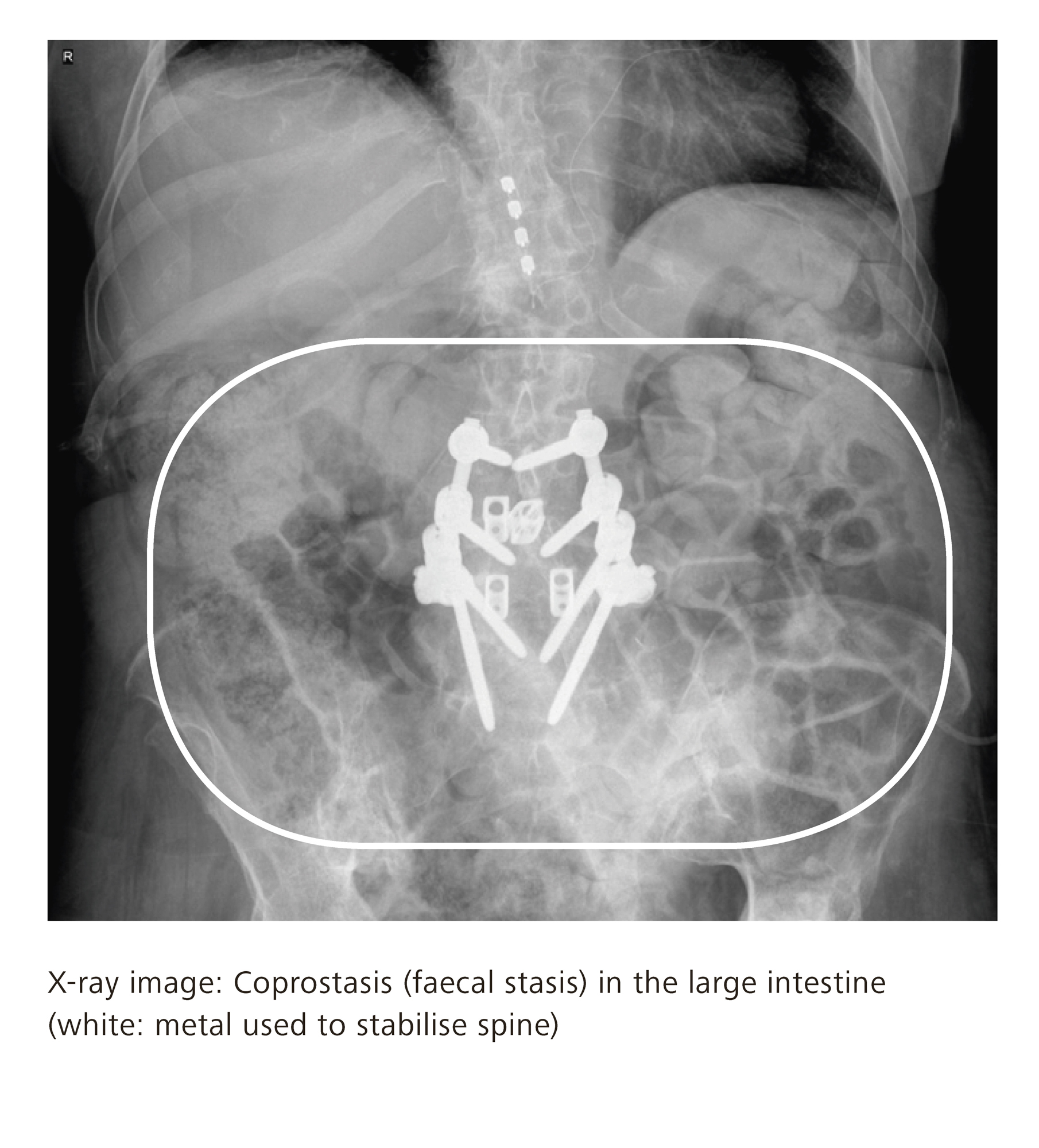
- 2 minutes to read
- 26 July 2019
What is constipation?
Constipation refers to bowel movements that are infrequent, hard to pass, small in quantity or hard and dry in consistency. There are different forms of constipation: chronic constipation, acute constipation and traveller’s constipation.
Different forms of constipation
Chronic constipation
Due to reduced bowel peristalsis and a decreased level of physical activity, people with spinal cord injury are particularly likely to be affected by chronic constipation.
Traveller’s constipation
Traveller’s constipation is a form of constipation that appears suddenly and is caused by a change of diet and unfamiliar surroundings while travelling. In most cases, it is only temporary and occurs at the beginning of a journey.
It can be caused by:
- Unfamiliar food and spices
- Dehydration caused by high temperatures and dry air
- Changing time zones during overseas trips
- Unusual daily routines
- Unfamiliar sanitary situations (toilets not equipped for wheelchair users, no shower wheelchair available, etc.)
Most of the causes mentioned above also apply to hospital stays. Unfamiliar food, unusual daily routines (e. g. confinement to bed) as well as the unfamiliar situation when using the toilet (time constraints, other people in the room, etc.) may cause constipation. The symptoms usually disappear once back home.
Acute constipation
Acute constipation is relatively rare. In contrast to chronic constipation, acute constipation appears suddenly and must be medically investigated immediately. If typical constipation symptoms are accompanied by problems such as a swollen abdomen or severe abdominal pain, then this may be indicative of an intestinal obstruction that requires immediate medical attention.

How can you tell if you are constipated?
- In 25 % of all bowel movements, the stool is hard
- Usually less than three defecations per week
- Defecation takes longer than usual
- Longer defecation intervals/less frequent manual discharge
- Incomplete stool evacuation
- No discharge of stool even if trying
- Severe flatulence (might cause respiratory problems)
How to prevent constipation?
Consistent individual bowel management reduces the risk of constipation:
- Regular, sufficient defecation, each day at the same time if possible
- Balanced diet high in fibre
- Adequate fluid intake, in hot weather that much more (rule of thumb: at least 1.5 litres of urine have to be excreted through the bladder each day)
- Physical activity
How to treat constipation?
Defecation can be accelerated by adjusting your oral stool medication. Additional defecation might be necessary. If this is ineffective, a Microclist or Freka-Clyss stimulation might be necessary. If this is also ineffective, please consult a physician.
Constipation can cause severe complications. It is therefore absolutely indispensable to ensure consistent bowel management and react in the case of changes.
Do I have to see a doctor every time I suffer from constipation?
No, you only need to see a doctor if the constipation lasts for several days without improvement. Before taking any kind of new medication, you should consult your physician.
Is it possible to suffer from constipation and diarrhoea at the same time?
Yes – this is called paradoxical diarrhoea. Constipation needs to be treated first.

Be the first to comment!